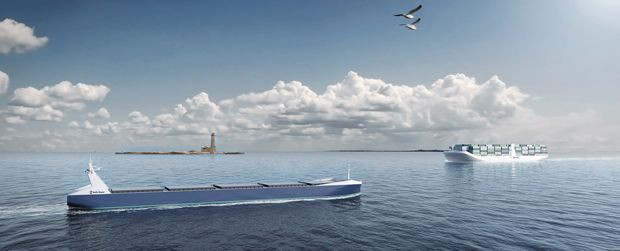Forget Self-Driving Cars, Autonomous Ships Are On The Way

Autonomous ships will likely be on the water before 2020 and frequently used within 15 years, according to Oskar Levander, Vice President of Innovation, Engineering, and Technology at Rolls Royce. The marine branch of Rolls Royce is joining Advanced Autonomous Waterborne Applications in Finland to continue to develop the technology necessary to complete this transition.
While most current shipping vessels are able to run purely off GPS, they still have crews aboard to ensure nothing goes awry. Autonomous or remote controlled ships would take away the need for shipping companies to hire crews. Shipping companies are creating more advanced technology and claim there aren’t enough people familiar with the developments to run their ships. Since the amount of people with proper maritime skills is decreasing, researches believe autonomous ships are the solution.
According to a 2012 report by Allianz Insurance, 75-96 percent of marine accidents are due to human error. The removal of crews would also diminish the chances for piracy. Pirates often use crew members for ransom and attempt to steal any cargo by using the navigation controls on board the ship to direct it to a place where they can unload. When piracy occurs, a Navy has to come and regain control of the entire ship while risking the lives of those on board. Ships that completely run off of GPS or are controlled by someone at headquarters would not be able to be stolen and no lives would be in danger.
Transitioning from humans to technology will be an expensive process. New ships need to be built with all of the necessary technology and security precautions. Companies will have to develop control centers for directing the ships as well as hire skilled technicians who can solve problems and navigate a ship through a tight shipping lane or dock. A single person could control several ships in open water, but once they were ready to dock a technician would have to divert all of their attention to a single one. If something on an autonomous ship goes wrong, an employee would be able to solve the problem through their control center, or would have to be flown into the middle of the ocean to fix it. This process is likely more extreme than what is required on human controlled ships. Will they still be worth it?
With companies developing more advanced technology, jobs are becoming more scarce. It is more affordable for a company to have a machine complete a task rather than a human. Machine controlled labor also reduces the risk of human error. Uber is attempting to develop self driving cars with Mercedes for the same reason. Companies are more willing to pay someone to fix a machine rather than pay someone to run it.
© Copyright IBTimes 2025. All rights reserved.




















